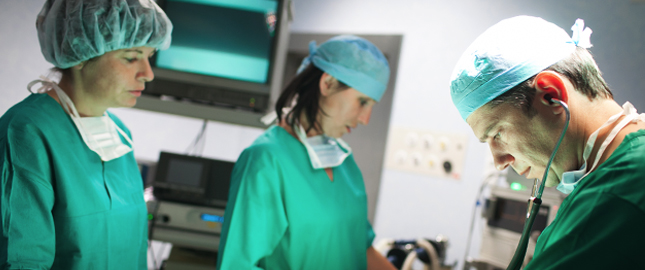
Bariatric surgery changes digestive system to help you lose weight. Bariatric surgery is done when diet and exercise haven’t worked or when you have serious health problems because of your weight.
- Patient benefits
- Prices
- Indications for surgery
- Risks
- Coures of the procedure
- Recovery
- Request an appointment
Patient benefits
Sleeve gastrectomy surgery can provide long-term weight loss. The amount of weight you lose depends on your change in lifestyle habits. It is possible to lose approximately 60% of your excess weight within two years.
In addition to weight loss, sleeve gastrectomy may improve conditions related to being overweight:
- Heart disease
- High blood pressure
- High cholesterol
- Obstructive sleep apnea
- Type 2 diabetes
- Stroke
- Infertility
Sleeve gastrectomy surgery can also improve your quality of life and ability to perform routine daily activities.
Price list, refunds provided by insurance companies:
Chargeable:
- Cost of verifying a patient’s eligibility for the procedure amounts to 100 €;
- Cost of the sleeve gastrectomy surgery amounts to 5500 €;
Insurance companies:
- Check if your insurance coverage includes the cost of medical eligibility or procedure
- If required we will prepare a treatment plan for your insurance company
Indication for bariatric surgery
- Your body mass index (BMI) is 40 or higher, called extreme obesity.
- Your BMI is 35 to 39.9, called obesity, and you have a serious weight-related health problem, such as type 2 diabetes, high blood pressure or severe sleep apnea.
- In some cases, you may qualify for certain types of weight-loss surgery if your BMI is 30 to 34 and you have serious weight-related health problems.
Risks
As with any surgical procedure, bariatric surgery poses potential health risks, both in the short term and the long term.
Risks associated with the sleeve gastrectomy surgery:
- Excessive bleeding
- Infection
- Adverse reactions to anesthesia
- Blood clots
- Lung or breathing problems
- Leaks in your gastrointestinal system
Long term risks and complications of sleeve gastrectomy surgery:
- Gastrointestinal obstruction
- Hernias
- Gastroesophageal reflux
- Low blood sugar (hypoglycemia)
- Malnutrition
- Vomiting
Very rarely, complications of sleeve gastrectomy can be fatal.
Course of the procedure:
Sleeve gastrectomy is done in the hospital. Usually hospital lasts one to two nights.
Surgery usually takes one to two hours and is performed under general anesthesia. Sleeve gastrectomy is performed laparoscopically, which involves inserting small instruments through multiple small incisions in the upper abdomen. The surgeon creates a narrow sleeve by stapling the stomach vertically and removing the larger, curved part of the stomach.
Recovery:
After sleeve gastrectomy, your diet begins with sugar-free, noncarbonated liquids for the first seven days, then progresses to pureed foods for three weeks, and finally to regular foods approximately four weeks after your surgery. You will be required to take a multivitamin twice a day, a calcium supplement once a day, and a vitamin B-12 injection once a month for life.
You’ll have frequent medical checkups to monitor your health in the first several months after weight-loss surgery. You may need laboratory testing, bloodwork and various exams.
You may experience changes as your body reacts to the rapid weight loss in the first three to six months after sleeve gastrectomy, including:
- Body aches
- Feeling tired, as if you have the flu
- Feeling cold
- Dry skin
- Hair thinning and hair loss
- Mood changes
Request an appointment:
A doctor will use this info to analyze your request.
Disclaimer:
This website describes standard aspects concerning your disease and treatment. It is not intended to replace professional medical treatment or talk between you and your surgeon about your disease, treatment or operation.
